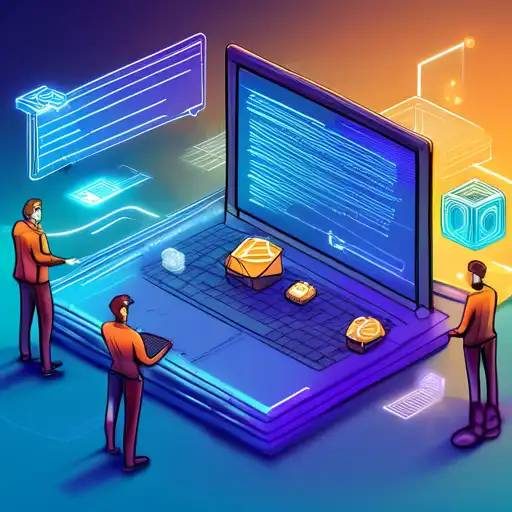Introduction to Smart Contracts
Smart contracts represent a pivotal innovation in blockchain technology, automating agreements without the need for intermediaries. These self-executing contracts with the terms of the agreement directly written into code have revolutionized how we think about trust and transactions in the digital age.
How Smart Contracts Work
At their core, smart contracts are programs stored on a blockchain that run when predetermined conditions are met. They typically are used to automate the execution of an agreement so that all participants can be immediately certain of the outcome, without any intermediary’s involvement or time loss.
Benefits of Smart Contracts
Smart contracts offer numerous advantages, including but not limited to:
- Autonomy and trust – No need to rely on a broker, lawyer, or other intermediaries.
- Backup – Your documents are encrypted on a shared ledger, which is virtually unhackable.
- Safety – Cryptography, the art of writing and solving codes, keeps your documents safe.
- Speed – You’d ordinarily have to spend chunks of time and paperwork to manually process documents.
- Savings – Smart contracts save you money since they knock out the presence of an intermediary.
Challenges and Considerations
Despite their potential, smart contracts are not without challenges. Issues such as the immutability of blockchain, the complexity of coding, and the lack of regulatory frameworks can pose significant hurdles. It's essential to approach smart contracts with a clear understanding of these limitations.
Real-World Applications
From finance to real estate, smart contracts are finding applications across various sectors. They are particularly transformative in areas requiring high levels of trust and transparency, such as supply chain management and voting systems.
Conclusion
Smart contracts are a cornerstone of blockchain technology, offering a secure, efficient, and transparent way to execute agreements. As the technology matures, we can expect to see even broader adoption and innovative applications. Understanding smart contracts is essential for anyone looking to navigate the future of digital transactions.
